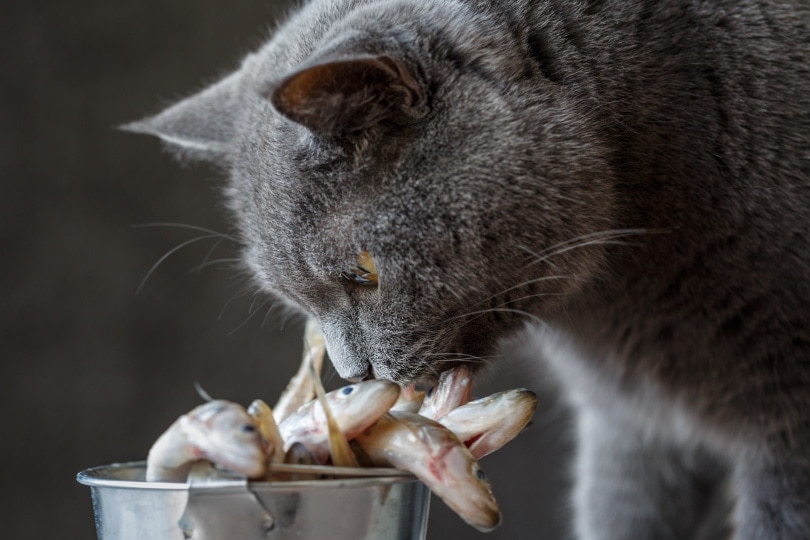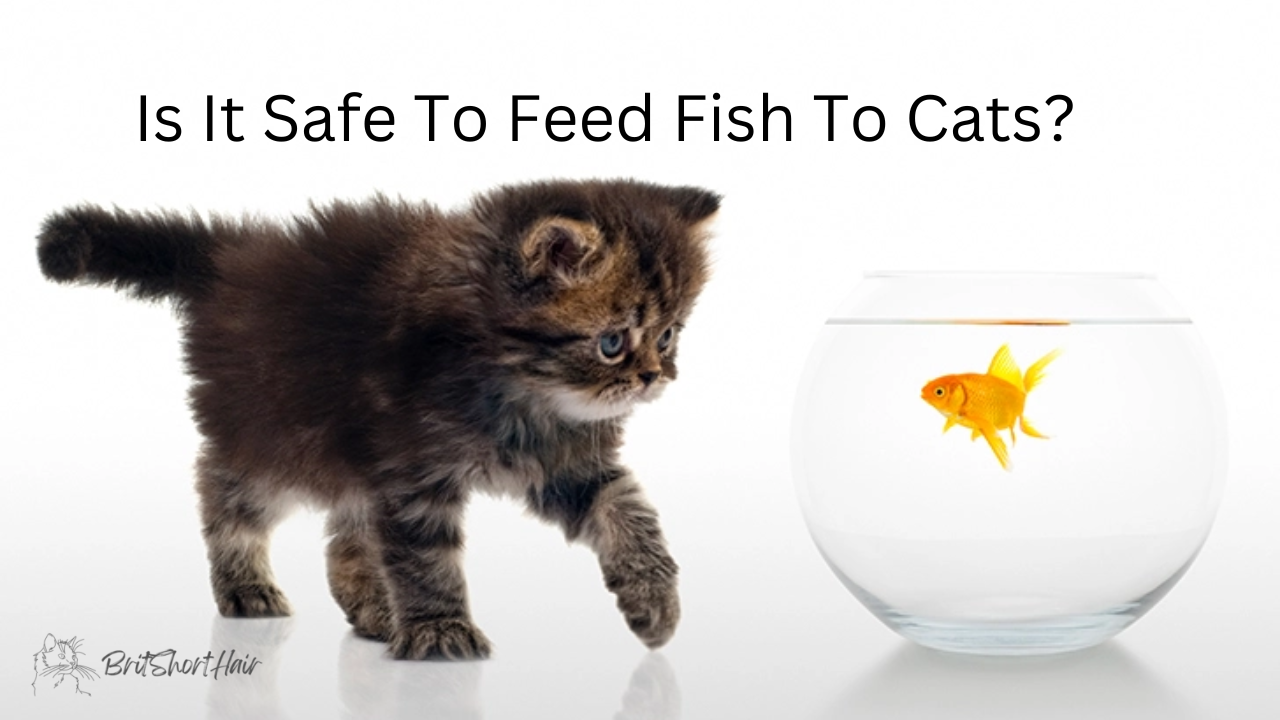Introduction

Have you ever questioned if it is safe to feed fish to your cats? Many cat owners wonder about this, especially as fish is typically seen to be a natural choice for our feline pals. After all, it’s readily available and appears to correspond to their carnivorous character. But, before you offer up a meal of fish to your canine partner, think about if it’s truly safe. We want the best for our cats, so let’s look into the hazards and benefits of including fish in their diet to make an informed decision that prioritizes their health.
Nutritional Benefits of Fish for Cats
Fish provides several nutritional benefits for our feline buddies. Let’s examine why it’s a great cat food option. First and foremost, fish provides high-quality protein. Cat growth, muscle development, and organ function depend on this. Our pets’ health depends on protein.
Fish also contains EPA and DHA, omega-3 fatty acids. Cats’ brains, skin, and coats benefit from these fatty acids. They’re mini superheroes for their fur, skin, and intelligence! Cats also need fish’s vitamins and minerals. It contains vitamin D, which strengthens bones, vitamin B12, which helps the brain system, and minerals like iodine and selenium, which are vital to many biological processes.
We can give cats these essential nutrients by feeding them fish. Fish can be a delightful and nutritious supplement to your pet’s diet.
Potential Health Concerns
Mercury Content
It is critical to understand that certain fish species, particularly larger predatory fish, can contain high levels of mercury. Mercury toxicity can be dangerous to both cats’ and humans’ health, impairing neurological and renal functioning. When feeding your cat, pick low-mercury fish options to reduce this potential risk. Fish with reduced mercury levels, such as salmon, trout, or smaller species like sardines and anchovies, are better choices for your feline friend’s diet.
Thiamine Deficiency
Feeding your cat a lot of raw fish might potentially contribute to thiamine deficiency, generally known as vitamin B1. Thiamine is essential for their metabolism and brain function, thus it is critical that they have enough of it. They may endure a loss of appetite, neurological difficulties, and weight loss if they do not obtain enough thiamine.
To avoid this shortage, make sure the fish is cooked or prepared in a way that keeps the thiamine content. You can retain this crucial vitamin while still making it safe for your cat to eat by boiling or baking the fish. By completing these procedures, you may provide them with the benefits of fish while keeping them healthy and free of thiamine deficiency disorders.
Bones and Choking Hazards
Fish can actually have small bones that can be dangerous for cats and potentially lead to choking. If cats ingest these bones, it can cause injuries to their digestive tract or even result in gastrointestinal obstruction. To prevent such incidents, it’s crucial to remove any bones from the fish before feeding it to your furry friend or opt for boneless fish options altogether. By taking the time to prepare the fish properly, you can greatly reduce the risk of choking or other complications in their gastrointestinal system.
Precautions and Guidelines for Feeding Fish to Cats

Variety and Moderation
Fish is good for cats, but they shouldn’t solely eat it. Cats need varied diets. Fish is a good protein source, but you should also eat eggs, poultry, and lean meat. This ensures your cat gets all the nutrition they need daily.
A cat’s diet may become deficient if fish is their primary protein source. Thus, fish is best served as a side dish. Moderation rules! If you offer a range of protein sources, your pet has the best chance of staying healthy and thriving.
Cooking Methods
It is critical to prioritize your cat’s safety when cooking fish for them. Cooking fish sufficiently helps to eradicate any potentially hazardous parasites or bacteria. Cooking methods that retain more nutrients, such as steaming, baking, or grilling, are better than frying.
While it may be tempting to season the fish, it is critical to be cautious of the ingredients used. Excessive salt, oil, or seasonings are bad for your cat’s health. They can eat their fish in a safe and healthy way if their meals are basic and free of unwanted additions.
Quality and Sourcing
To ensure that your cats are getting safe and nutritious food, it’s important to choose fresh, high-quality fish. Look for reputable suppliers who follow proper handling and storage practices to maintain the fish’s quality and safety.
If fresh fish isn’t readily available, frozen or canned options can also be considered. Just make sure to check the labels and opt for fish that doesn’t contain additives or excessive sodium. By being selective about the fish you choose, you can provide your cats with a healthy and enjoyable meal.
Alternatives to Fish in a Cat’s Diet
It’s a good idea to include fish in your cat’s diet, but it shouldn’t be the only source of protein. You have other viable possibilities. Poultry, such as chicken or turkey, lean meats, such as beef or lamb, and eggs can all be good sources of protein for your cat.
Additionally, commercial cat food that is specifically prepared to satisfy their nutritional demands can provide a balanced diet. It’s always a good idea to contact a veterinarian for personalized nutritional recommendations that takes your cat’s individual needs into account. They can advise you on the finest protein sources and general diet to keep your feline buddy healthy and happy.
Conclusion
In conclusion, feeding fish to cats is safe and nutritious if done properly. To safeguard our cats’ health, we must examine fish’s nutritional benefits and hazards. Diet variety is crucial. Fish provides protein, but it shouldn’t be their only food. A balanced diet includes chicken, lean meats, and other protein sources.
Cooking methods matter too. Steaming, baking, or grilling fish retains more nutrients and less hazardous chemicals than frying. Choose high-quality fish sources. Trustworthy suppliers handle and store fish appropriately, ensuring freshness and safety.
Finally, vet advice is invaluable. They can recommend the ideal diet for your cat. Following these instructions ensures that our pets get a healthy, balanced diet that includes fish.
hey we have a lot of information on cats you can check out by clicking Bristhorthair.com
wants to follow us on social media

